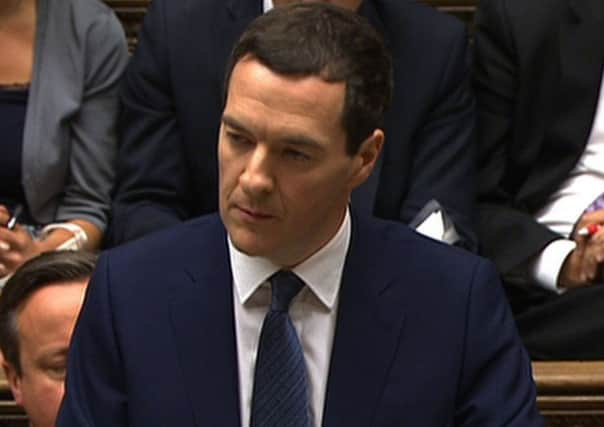Summing up: Gluttons for Osborne’s punishment


Surveys should always be taken with a pinch of salt. But this provides yet another indication of the extent to which the Tory “scrounger” narrative has succeeded. More than five years of twisting the truth to justify ideological attacks on the welfare state have taken us to a point where the measures set out on Wednesday will be greeted more with acceptance than anger.
We’ve already got a good idea of what to expect, including cuts to tax credits, the taxation of support for the disabled and the abolition of housing benefit for those aged 18 to 25.
Advertisement
Hide AdAdvertisement
Hide AdWhen even the free market cheerleaders at the Institute of Economic Affairs warn that the next round of welfare cuts will be “extremely unfair”, you know the government is crossing a line when it comes to basic decency and fairness.
It’s all depicted as somehow being essential in ending the so-called culture of dependency. Yet 70 per cent of tax credits – a “ridiculous merry-go-round”, according to David Cameron – go to people in work, supplementing the low wages paid by employers. So how does cutting them increase the incentive to work?
It’s estimated that people will lose around £60 a week in cuts to in-work benefits. Cameron, who in April pledged that child tax credit “would not fall”, claims the gap will be bridged by wage increases, an assertion with no basis in evidence.
In cutting tax credits the Chancellor is gambling on a sustained recovery in wages over the next couple of years, with inflation and interest rates remaining benign. But the headwinds are far too strong to make that assumption, due to various factors, including events in Greece and the unwinding of quantitative easing. Austerity, as Greece has helped demonstrate, doesn’t stand up to economic scrutiny.
Meanwhile, the government’s hunger for cuts remains selective. We can still afford to keep buy-to-let tax breaks, raise the IHT threshold and increase the personal allowance (which does nothing to help those on the lowest incomes), not to mention indulge non-doms and corporate tax evaders.
Even if inflation and interest rates do remain low, the measures being set out this week will tip many households over the edge, to the point of being expected to live on less than it costs to adequately feed themselves.
It will mean more parents going without food to ensure their children don’t starve, more children living in inadequate housing, and more disabled people losing their independence and dignity, all in one of the richest countries on the planet.
Think this sounds unlikely or even melodramatic? Think again.